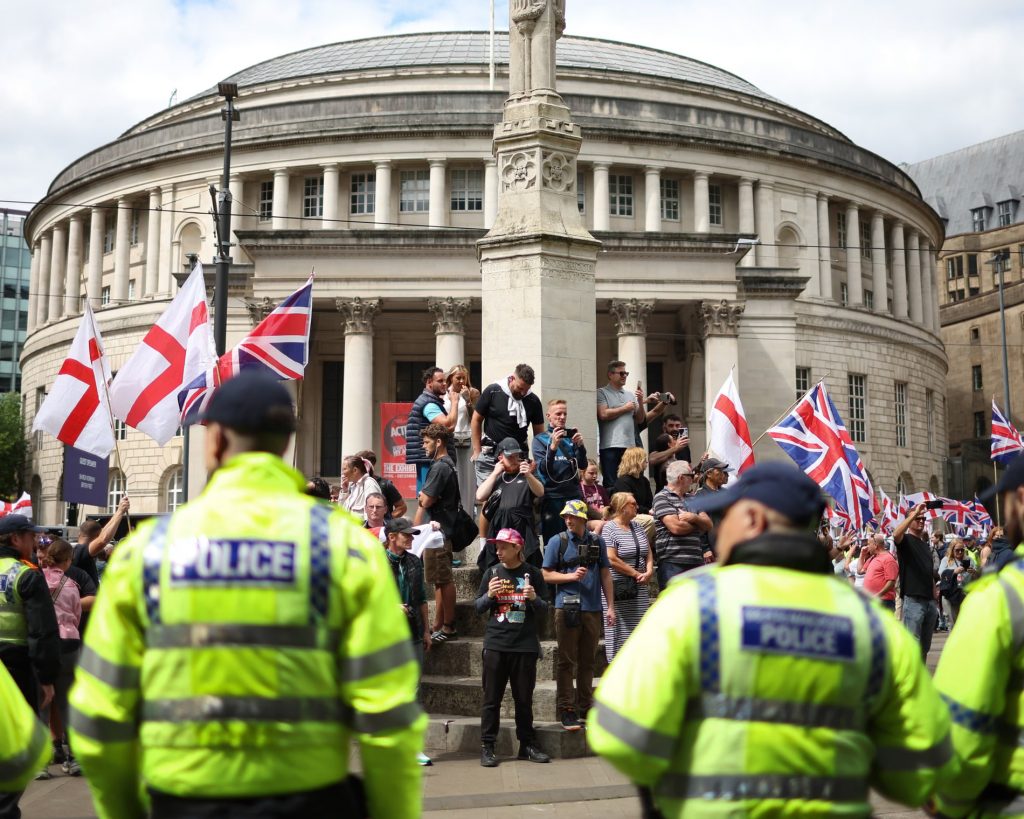Police forces across England are on high alert this weekend as far-right groups intensify calls for anti-migrant demonstrations, prompting counter-protests from anti-racism campaigners.
On Friday evening, restrictions will be enforced in multiple locations — including Norwich — with officers deployed to at least 12 towns and cities. Authorities are particularly concerned about a Saturday protest at the Nuneaton council offices, where Warwickshire Police have rejected allegations from Reform UK council leader George Finch that they withheld information about the alleged rape of a 12-year-old girl.
While many recent demonstrations have drawn participation from local residents, law enforcement notes that far-right activists — including supporters of controversial figure Tommy Robinson — are playing a significant role in mobilising crowds online.
Chief Constable BJ Harrington, who chairs the National Police Chiefs’ Council operations coordination committee, urged the public to critically assess information circulating online, warning of the dangers of misinformation in fuelling unrest.
“The spread of disinformation can heighten community tensions and have real-world consequences,” Harrington said, stressing that criminal law applies to online actions as well.
Police have pledged to uphold lawful, peaceful protest rights but will deploy public order units and evidence-gathering teams to respond to any disorder.
Georgie Laming, campaigns director at the anti-extremist group Hope Not Hate, said attendance at the protests remains unpredictable:
“Some may fizzle out, while others could attract larger numbers. These events now resemble the anti-migrant protests of 2023 more than the violent riots we saw in 2024.”
Recent incidents have heightened tensions. In July, violent clashes in Essex saw police vehicles vandalised during protests outside an Epping hotel housing asylum seekers. While anti-racism activists outnumbered demonstrators in a later protest, far-right groups — including the Homeland Party and Patriotic Alternative — continue to push for rallies in various towns.
London has also seen confrontations, including outside hotels in Islington and Canary Wharf, the latter being the site of a so-called “pink protest” involving women and children. Despite its branding, far-right activists have been present both at the scene and online.
Police in Norfolk have invoked special powers for a Bowthorpe protest, including face-covering removal orders and dispersal authority for anyone engaging in antisocial behaviour between 2 p.m. Friday and 2 a.m. Saturday.
With heightened security, competing protests, and a volatile political climate, law enforcement faces the challenge of containing tensions while balancing the right to protest with public safety.

